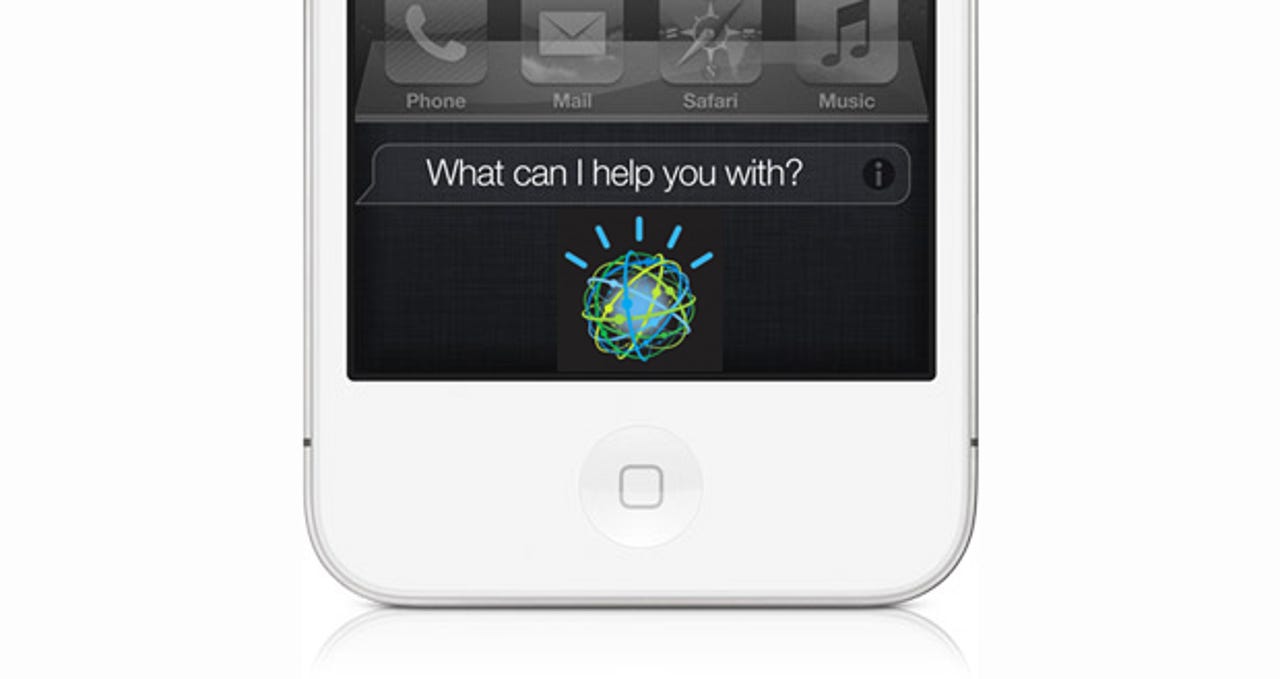Siri stumped? Call Watson


Compared to Apple's Siri speech-activated personal assistant, IBM's Watson is a genius.
Zooey Deschanel might ask Siri, "Is that rain?"
She might ask Watson, "Who's the author that wrote, 'It was a dark and stormy night'?"
(Edward Bulwer-Lytton, for the literary-minded among you.)
Until now, Watson's tech has been too big to cram into a mobile device. All those smarts takes a room full of servers, an incredible amount of calculations and a thick wire into the electrical mains.
That's about to change.
The power consumption behind Watson's performance is "dropping like a stone," IBM's Bernie Meyerson told Bloomberg, and that means Watson 2.0 may be mobile-ready.
(Don't get your polysilicon in a twist just yet, Siri.)
That's a big deal for IBM, which has been using Watson's brains to crunch huge datasets for financial services firms (e.g. Citigroup) and healthcare groups (WellPoint) alike. It's also a big deal for Nuance, the company behind Siri's speech recognition abilities, which also happens to own and license several IBM patents related to it.
But how and where the companies will meet is unclear. IBM has always targeted the enterprise; Nuance has played both sides but is popular with consumers, thanks to the iPhone. IBM needs more "senses" to play ball, and Siri could use more brains.
The most obvious place these two sets of technologies converge? The workplace. The consumerization of the enterprise is well underway, and the most obvious place where those collide -- your brought-from-home mobile device that you use for work and play -- is already in your pocket.
"Siri, how many ZDNet readers unsubscribed from our newsletters, on average, over the last 18 months?
"Siri, how's our EBITDA looking? Are we on track?"
Or if you're in healthcare: "Siri, what are the pros and cons of patient 67 taking tigecycline?"
Or if you're in the public sector: "Siri, which intersections have had the most collisions in the last six months?"
You get the point. We're still several years off from Watson-on-the-go, but the possibilities are tantalizing. The business implications? Even better.